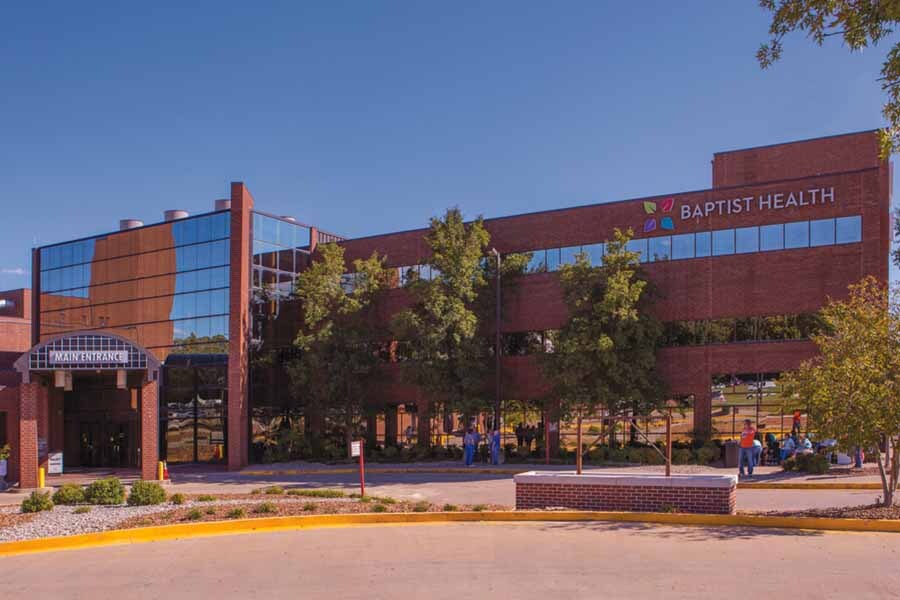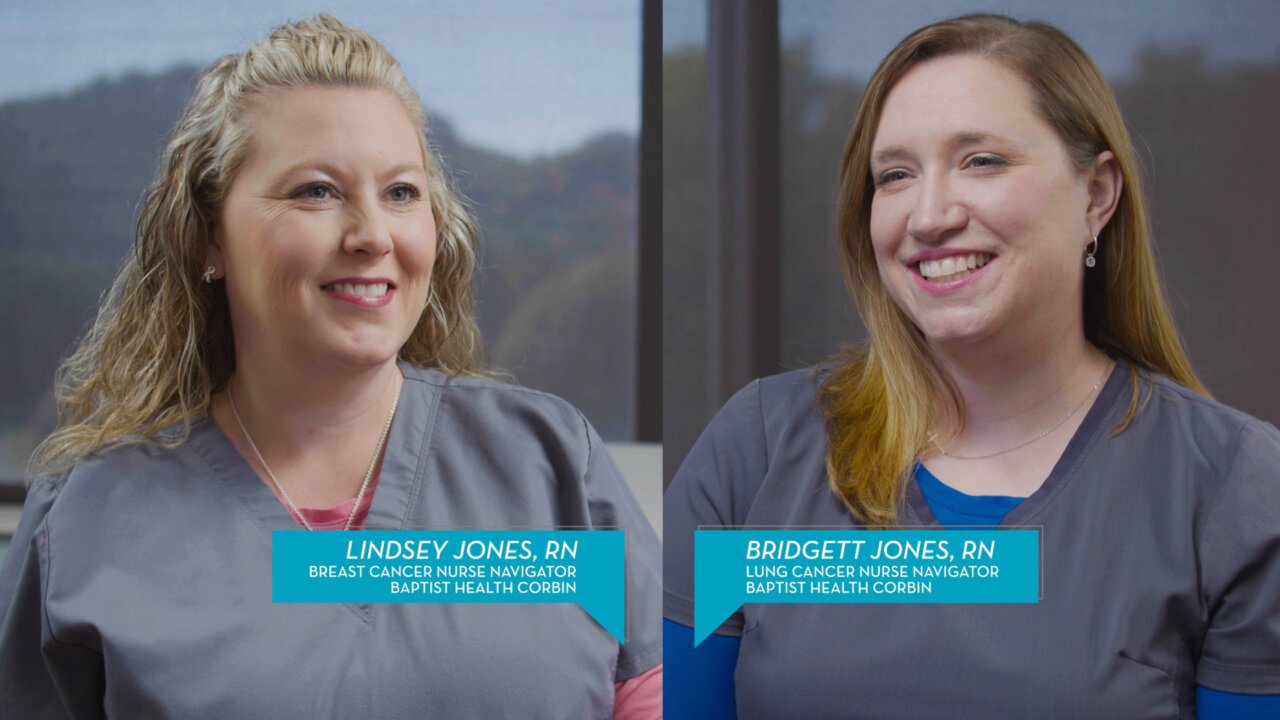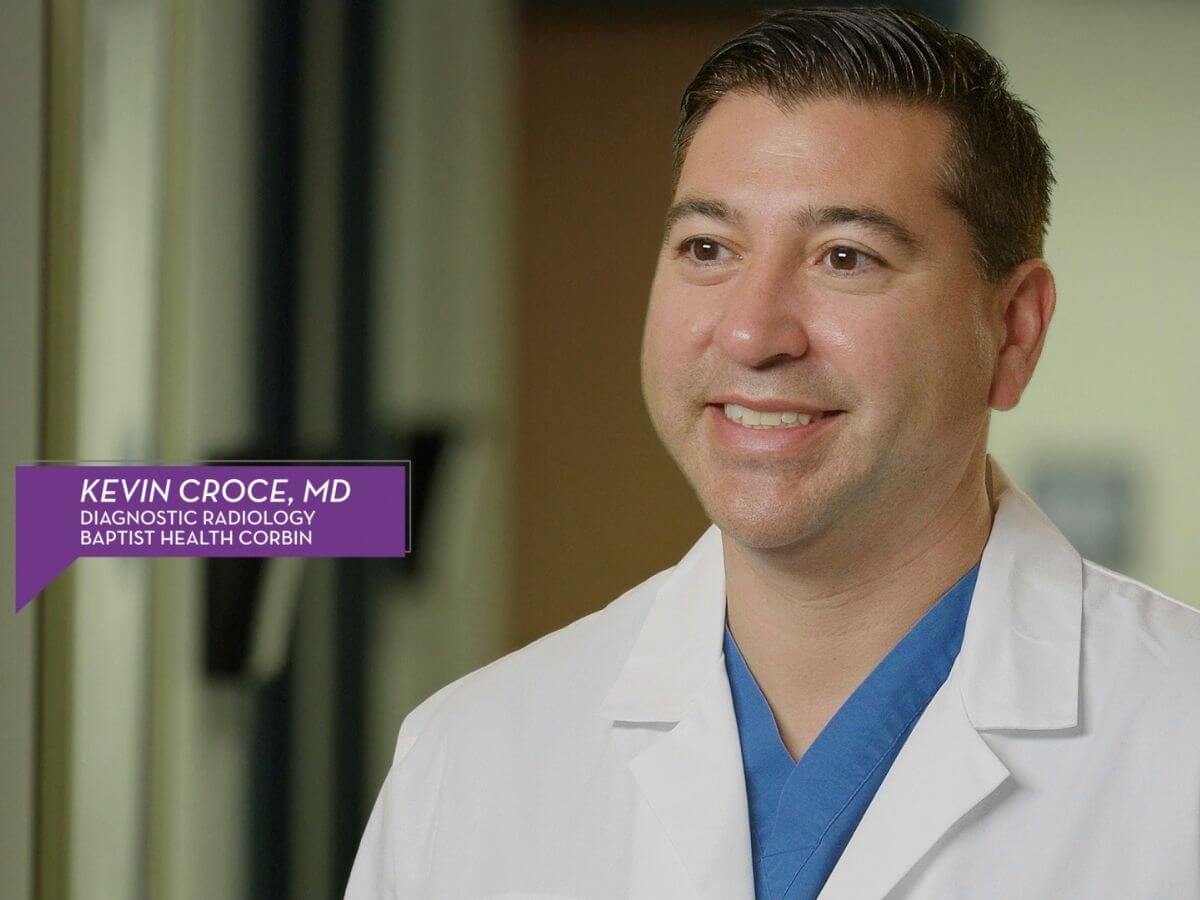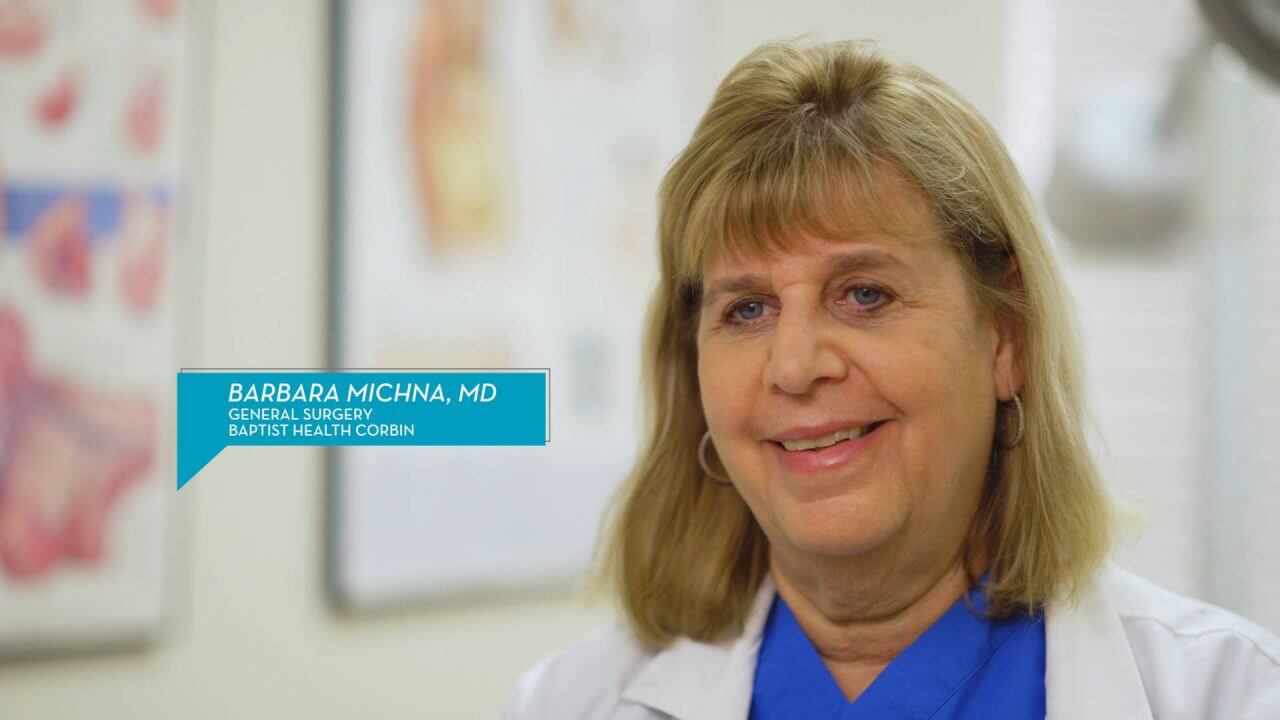
Tracy Owens Cancer Center in Corbin, KY
Tuesday: 8:00 AM - 4:30 PM
Wednesday: 8:00 AM - 4:30 PM
Thursday: 8:00 AM - 4:30 PM
Friday: 8:00 AM - 4:30 PM
Saturday: Closed
Sunday: Closed
About the Tracy Owens Cancer Center
At Baptist Health Corbin's Tracy Owens Cancer Center, we provide expert diagnosis and treatment for a wide range of cancers, including solid tumors and hematologic malignancies, such as leukemia and lymphoma. We also offer care for benign hematologic conditions, including abnormal blood counts and clotting disorders.
Our team blends advanced technology with compassionate care, ensuring the best possible treatment with minimal disruption to your daily life. Here, you’ll find experienced providers who treat you like family, offering personalized care in a comfortable and supportive environment, right in your community.
A Patient-Centered Approach
At Baptist Health Corbin, we believe exceptional cancer care goes beyond medical treatment, it’s about supporting the whole person. Our team of specialists works together to provide personalized, multidisciplinary care, ensuring that every patient receives the best possible treatment in a compassionate and comfortable setting.
Our expert care team includes specialists in:
- Medical Oncology
- Radiation Oncology
- Radiology
- Pathology
- Surgical Specialists
- Pulmonology
- Urology
- Social Work
- Nurse Navigation
- Genetic Counseling
To enhance your experience, we provide heated reclining massage treatment chairs, warm blankets, and the option of open or private treatment areas. Snacks and meals are available throughout your treatment, and our dedicated volunteers are here to assist with any additional needs.
We understand that cancer care extends beyond medical treatment. That’s why we provide physical, emotional, spiritual, and financial support, ensuring that every patient and family member feels truly cared for.
Services and Treatments Offered at the Tracy Owens Cancer Center
Treatments
At Baptist Health Corbin, we provide cancer treatments that are designed to deliver the most effective care with the latest advancements in medical technology. Our innovative therapies include:
- Immunotherapy: Activating your immune system to fight cancer.
- Targeted Therapy & Advanced Chemotherapy: Personalized treatments designed for specific cancer types.
- Stereotactic Body Radiation Therapy (SBRT): A highly precise radiation treatment that minimizes damage to healthy tissue.
- Robotic Navigational Bronchoscopy & Lung Nodule Clinic: Advanced lung cancer detection and treatment.
As a proud member of the Baptist Health Cancer Research Network, we participate in clinical trials to explore groundbreaking approaches to cancer diagnosis, treatment, and recovery, bringing the latest advancements in cancer care directly to our patients.
With You Every Step of the Way From Diagnosis to Treatment
At the Corbin Breast Care Center, our mission is to provide exceptional breast care with the most advanced technology available. Our goal is early detection and accurate diagnosis in a comfortable, patient-friendly setting.
Comprehensive Breast Imaging & Diagnostics
Our Breast Care Center provides:
- 3D Tomosynthesis Mammography: The gold standard for early breast cancer detection.
- Ultrasound & MRI Imaging: High-resolution screening for thorough diagnostics.
- Bone Densitometry (DEXA Scan): Detecting osteoporosis and bone health concerns.
- Affirm Biopsy System: More comfortable, sitting-position biopsies with increased accuracy.
All imaging technology is designed for early detection, helping to catch abnormalities as soon as possible.
Dedicated Specialists Providing Compassionate Breast Care
Our Breast Care Center is staffed by a team of highly skilled professionals committed to providing expert care with a personal touch. Our specialists include:
- Board-Certified Breast Radiologist, Francie Masters, MD., who oversees patient imaging and care.
- Registered Mammographers with extensive experience in breast imaging.
- American Registry of Radiologic Technologists (ARRT) certified professionals.
Our team works closely with the Baptist Health Corbin Navigation team to coordinate any additional services you may need, including enrollment in our free and comprehensive Specialty Pharmacy patient management program.
Preparing for Your Visit to the Tracy Owens Cancer Center
We accept referrals from all providers, as well as direct patient scheduling. If you would like to make an appointment, please call 502.526.4770.




